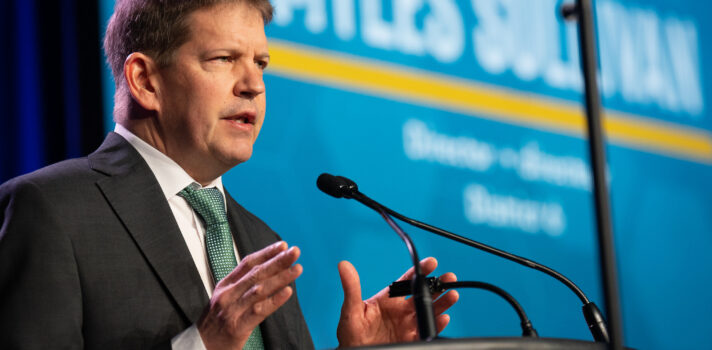The United Steelworkers union (USW) is celebrating a historic victory for workers across Canada, as the anti-scab legislation passed the final stage of the legislative process in the Parliament of Canada, receiving Royal Assent. This milestone marks the culmination of decades of relentless struggle by the Steelworkers, alongside the broader labour movement, the NDP and the Bloc Québécois.
“The Steelworkers and the entire labour movement have fought for decades to make this legislation a reality,” said Marty Warren, USW National Director. “This is a historic day and, above all, a major achievement in the fight for the rights of federally regulated workers, who will now be protected during labour disputes.”
The newly adopted legislation, which will come into force on June 20, 2025, will ban the use of replacement workers during labour disputes, and thereby restore greater balance to collective bargaining. It will not only facilitate the negotiation of better working conditions, but also reduce the number and duration of labour disputes.
“This victory would not have been possible without the ongoing work with our parliamentary allies, who have consistently supported us in this fight and are committed to advancing workers’ rights,” added Warren. The inclusion of this measure by the NDP in the Supply and Confidence Agreement with the government was also critical to the success of this legislation.
The USW also expresses its appreciation to those who remained dedicated to this fight. This victory shows the power of collective action and solidarity and reaffirms the union’s commitment to advancing the rights and well-being of workers across Canada.
About the United Steelworkers union
The USW represents 225,000 members in nearly every economic sector across Canada and is the largest private-sector union in North America, with 850,000 members in Canada, the United States and the Caribbean.
Each year, thousands of workers choose to join the USW because of the union’s strong track record in creating healthier, safer and more respectful workplaces and negotiating better working conditions and fairer compensation – including good wages, benefits and pensions.
Share on Facebook




